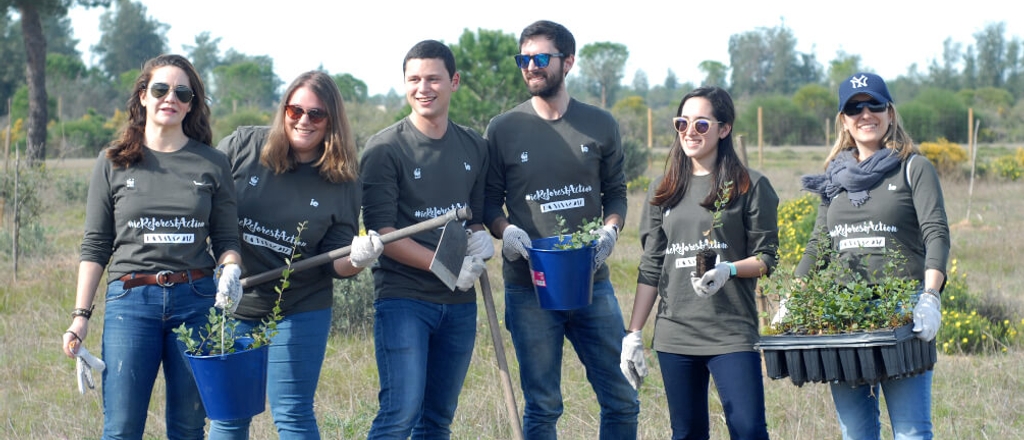- Home
- News And Events
- News
- Ie University To Promote Social And Environmental Impact Projects In 2021, In Line With The United Nations Sdgs
IE University to promote social and environmental impact projects in 2021, in line with the United Nations SDGs

IE University will promote the development of social and environmental impact initiatives as part of its sustainability strategy in 2021. This year, with the aim of building an engaged, cohesive, and resilient community the institution will increase by 25% the proportion of time that students, faculty, and staff in labs, workshops, and projects spend on projects that have a positive impact on society, in line with the United Nations SDGs.
“The transformation of a society depends on behavior changes that we make as individuals, and the acknowledgment that: what I do is a reflection of who we are as a community. At IE University, we work to inspire our students, faculty, and staff by highlighting exemplary people and projects in order to generate community awareness that change is indeed possible.”
Isabela del Alcázar, Global Head of Sustainability at IE University
“McKinsey experts recently confirmed that companies that want to contribute to society must do so by supporting employees and the members of their organization through work that is meaningful. To that end, at IE University, we aim to reinforce our values and drive positive change through education, research and innovation,” added Del Alcázar.
100% renewable energy consumption by 2021
In 2020, IE University announced its 10 Year Challenge, a project that poses annual tasks to drive sustainability between 2020 and 2030. IE University has set the following consumption targets for 2021:
- 100% renewable energy consumption.
- 100% reduction of electricity emissions.
- 5% reduction in waste generation.
- 0.5% reduction in electricity consumption.
- 100% sustainable paper consumption.
- Additional 5% reduction in paper consumption.
Last year’s achievements focused on responsible consumption and last year’s key achievements included:
- A 48% reduction in paper consumption and a 40% reduction in water consumption thanks to automation technologies. The goal is for 100% of electricity to be renewable this year.
- €20 million in scholarships for first-year undergraduate, master's degree, and executive education students.
- 1,800 hours of classes on subjects related to sustainability.
- More than 50,000 hours of work dedicated to academic projects with a social impact.
- 13 case studies, 23 academic articles published in international journals and 15 dissemination articles to promote international debate on sustainability challenges.
- More than 100 events focused on sustainability.
Over the past years, IE University students, faculty, and staff have been developing a variety of social impact projects. For example, students with the IE School of Architecture and Design have worked in the D-lab in collaboration with Segovia City Hall to redesign old telephone booths to make reading more accessible. IE University students have dedicated more than 5,000 hours a year to promoting companies and organizations in different sectors through the Impact Project. At the same time, IE Law School students have provided more than 30,000 hours of pro bono legal advice at IE University's Legal Clinic. More than 300 students and professors have traveled to Ghana with the NGO Financiers Without Borders (FsF) to develop financial inclusion projects in Africa based on microcredits. The Social Impact Lab has also promoted student work to support social enterprises in South Africa and Spain.
“Our students will have an enriched learning experience by working on social and environmental projects that help them develop responsible leadership skills and to understand parallel realities of which they were previously unaware. We work with the objective of integrating sustainability into the management, programs, and culture of our institution, in order to form global, committed, and responsible citizens for the construction of a better world,” Isabela del Alcázar added.